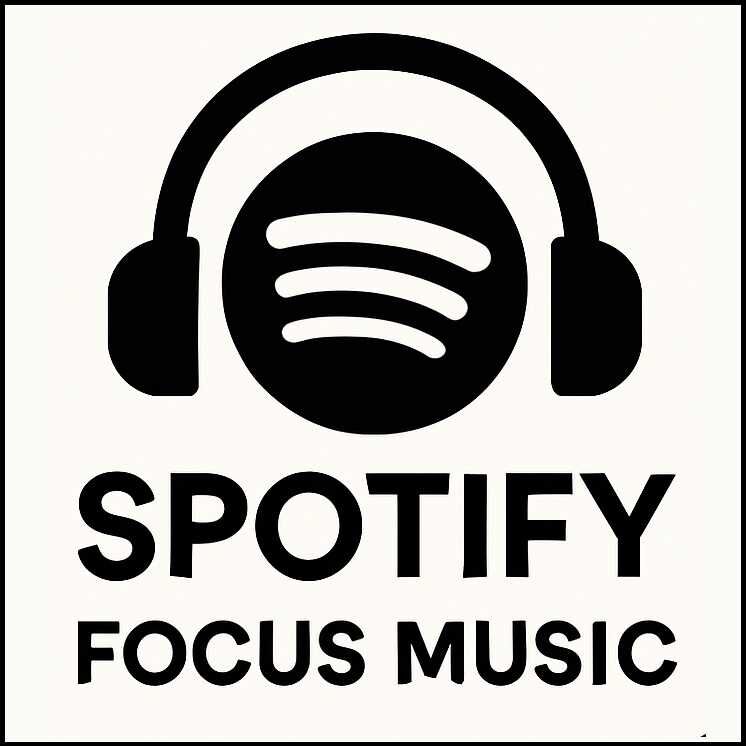In an age of constant distraction, the ability to concentrate has become a superpower. Whether you’re studying for exams, writing a report, designing a product, or simply trying to stay present, music has emerged as a powerful tool to enhance focus. But what exactly is focus music? How does it work? And what does neuroscience say about the connection between sound and concentration?
In this article, we explore the science behind focus music, its key genres, and how it influences the brain to help you enter a state of deep, productive flow.
1. What Is Focus Music?
Focus music refers to a broad category of instrumental or low-distraction music designed to improve concentration and cognitive performance. Unlike traditional music for entertainment or emotional expression, focus music is crafted or curated specifically to support mental tasks by:
-
Reducing environmental distractions
-
Regulating emotional states
-
Encouraging sustained attention
-
Supporting memory and learning
Focus music is often minimalistic, repetitive, ambient, or rhythmic in nature — characteristics that make it effective at blending into the background and gently stimulating the mind without drawing attention away from the task.
2. How Music Affects the Brain: The Neuroscience of Focus
The brain is highly sensitive to auditory input. Music affects various brain regions and can significantly impact cognitive processes. Here are the key ways music supports focus:
a. Activation of the Prefrontal Cortex
The prefrontal cortex is the command center for attention, planning, and decision-making. Certain types of music (especially instrumental and ambient) can activate this region by promoting a state of calm alertness, also known as relaxed concentration.
b. Regulation of Dopamine
Listening to music you enjoy increases dopamine levels — the “feel-good” neurotransmitter linked to motivation and reward. Dopamine release supports goal-directed behavior, helping you stay on task longer.
c. Reduction of Stress and Anxiety
Music has a calming effect on the amygdala, the brain’s center for emotion and stress. When you’re anxious or mentally scattered, music can reduce cortisol (stress hormone) levels and help restore cognitive clarity.
d. Entrainment of Brainwaves
Certain genres like ambient, chillstep, or binaural beats can influence brainwave activity — particularly alpha (8–12 Hz) and theta (4–8 Hz) waves. These frequencies are associated with relaxed alertness, creativity, and learning.
3. Best Genres and Styles of Focus Music
Not all music supports focus equally. Lyrics, complex melodies, and dynamic shifts can be distracting. Here are some of the most effective genres and why they work:
? Ambient Music
Smooth, texture-rich soundscapes that support calm and mental clarity. Great for creative thinking or low-pressure tasks.
? Lo-Fi Hip-Hop
Lo-fi (low fidelity) tracks with steady beats and vinyl crackle. Popular among students and coders for its simplicity and mood-boosting effects.
? Chillstep & Future Garage
Electronic subgenres that blend ambient textures with subtle rhythms. These are ideal for flow states, as they balance energy with minimalism.
? Classical & Baroque
Especially pieces by Bach or Mozart. Their mathematical structure supports memory, logical thinking, and spatial-temporal reasoning.
? Binaural Beats
Audio tracks with slightly different frequencies in each ear. Used to entrain brainwaves into specific states (e.g., focus, sleep, meditation).
? World & Ethnic Instrumentals
Instruments like the handpan, sitar, or kora create hypnotic rhythms that stimulate deep listening and grounded focus.
4. Focus Music vs. Background Noise: Why It Matters
Some people believe silence is best for concentration, but research shows that low-level background sound can actually improve performance — especially in noisy or distracting environments.
? A 2021 study from the University of Southern California found that students who listened to focus music scored 18% higher on reading comprehension than those in silence.
Unlike random background noise, focus music is structured and intentional, designed to reduce mental fatigue and improve working memory, processing speed, and attention span.
5. When to Use Focus Music
Focus music isn’t one-size-fits-all. It’s most effective when matched to the nature of your activity. Here are examples:
| Activity | Recommended Style |
|---|---|
| Studying & Reading | Ambient, Lo-Fi, Binaural Beats |
| Writing & Creative | Chillstep, Handpan, Piano |
| Coding & Analysis | Classical, Lo-Fi, Minimal Techno |
| Yoga & Meditation | World Music, Hang Drum, Ambient |
| Workouts & Sports | Energetic Chillstep, Uplifting EDM |
6. How to Create Your Own Focus Playlist
While there are many premade playlists (and we have curated the best on this site), building your own can be powerful. Tips:
-
Choose instrumentals or music in a language you don’t understand
-
Keep tracks between 60–120 BPM (ideal for working focus)
-
Include music you emotionally connect with — but not too much!
-
Avoid songs with high dynamic changes or sudden tempo shifts
And remember to use headphones. They minimize distractions and deepen immersion.
7. Limitations and Personal Differences
Not everyone responds to music the same way. Factors like personality type, neurodiversity (e.g., ADHD), and cultural background all influence how music affects focus. Some people may find music distracting for reading but helpful for design work.
The key is experimenting — find the genres, rhythms, and environments that best support your unique mind.
Conclusion
Focus music is more than just background sound — it’s a scientifically grounded tool to unlock deeper concentration, reduce stress, and enhance cognitive performance. Whether you’re studying for an exam, building a new habit, or powering through work, the right soundtrack can transform your mental environment.
By understanding how music interacts with the brain and choosing the right genres for your tasks, you can build a personal soundscape that supports your goals and well-being.
? Keywords
focus music, brain and music, music for concentration, study music, chillstep focus, handpan instrumental, music for productivity, ambient music, binaural beats for studying, best music for work, lo-fi beats, improve focus with music, relaxing handpan, world music for study


